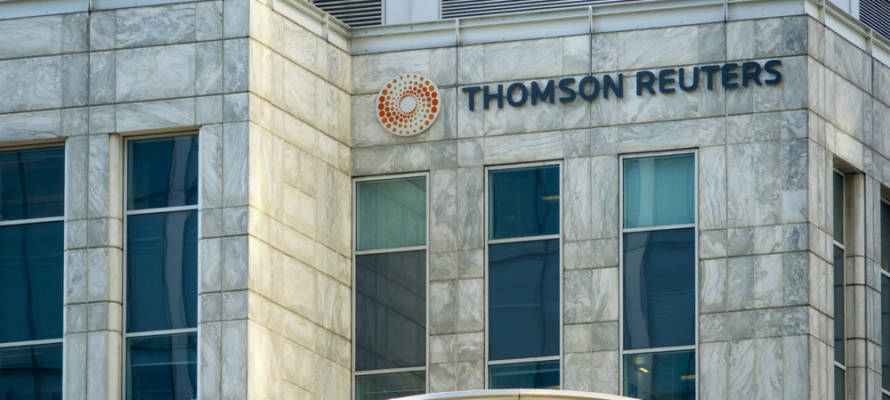Reuters, a major international news agency, falsely blamed Israel for water supply issues in a Bethlehem-area Palestinian village in an article published earlier this week, according to media watchdog HonestReporting.
By: Barney Breen-Portnoy/The Algemeiner
The Reuters piece in question alleged that Mekorot — Israel’s national water company — was “responsible for supplying water to Palestinians” in the “West Bank.” Furthermore, the article highlighted claims by Al Jab’a village residents that the Mekorot system “supplies water only intermittently and at low pressure” and their fears that their community’s illegally-built reservoir could be demolished by Israel.
This, the HonestReporting watchdog group said on Thursday, painted an inaccurate picture of the true water situation in Judea and Samaria. HonestReporting cited a March 2016 NGO Monitor report, which noted that — according to the 1995 Oslo II Agreement — the Palestinians are “free to build any and all components of the water and sanitation sector, subject to the approval of the JWC [Joint Water Committee.] Once approved, Israel has no further authority over projects in Areas A and B (Palestinian military and/or civil control). Palestinian water projects in Area C (Israeli civil and military control) require permits from the Israeli Ministry of Defense Civil Administration (CA). However, in most cases, implementation of the projects is the responsibility of the PWA (Palestinian Water Authority).”
Furthermore, the NGO Monitor report said, “[t]he Water Agreement allows the Palestinians to dig and maintain their own wells, and the majority of wells in the West Bank are owned and operated by the Palestinians. Mekorot drills in the West Bank, as agreed upon by the Palestinians in the JWC, in order to provide water to both Palestinians and Israelis regardless of nationality.”
HonestReporting went on to explain, “Why have water projects not been approved by the JWC? As a 2013 study pointed out, Palestinian representatives have refused to meet with Israeli authorities to coordinate water management activities. Given that the Palestinians aren’t prepared to cooperate with Israel, it has led to a situation where unauthorized infrastructure such as the reservoir in Al Jab’a have been constructed without permission (Al Jab’a is located in Area C of the “West Bank,” which is under the full administrative and security control under the Oslo Agreements). So Palestinians refuse to meet with Israelis who are offering to help improve their water supplies.”
In a statement sent to HonestReporting on Thursday, the Civil Administration — Israel’s governing body in Judea and Samaria — said:
In the previous years, the State of Israel has raised the water flow to the Palestinian Authority. Just last summer, 11,000 cubic meters of water were added to the water line leading to Bethlehem and Hebron, which is connected to a water pipe leading to the village of Al Jab’a. It should be noted that starting from the connecting pipes, the Palestinian Authority is responsible for regulating the water.
Civil Administration officials are continuously in contact with the residents of Al Jab’a which has raised no complaints regarding the water supply. Also, there have been no demolition orders issued against water facilities within the village.
Due to the regular failure of convening the Joint Water Committee, COGAT unilaterally confirmed over ten projects, such as water and sewer connections in the past two years, which are designed to improve the water infrastructure in Judea and Samaria. One of the projects is a comprehensive upgrade of the water system in the area between Al Jab’a and Tarqumyia, including the replacement of water pipelines, pumping stations and the construction of water reservoirs. This upgrade, is an initiative of USAID and is expected to significantly improve the water regulatory system. The Coordinator has approved the project… and has urged the Palestinian Authority to promote the initiative, which affects mostly Area B.
Currently Israel supplies to the Palestinian Authority some 67 million cubic meters of water a year, which is a large amount of 30 million cubic meters above that determined in the Oslo Accords.
